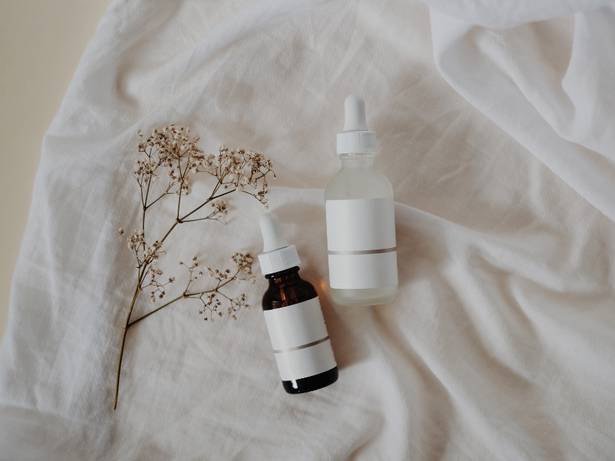Skincare Doesn't Have to Be Complicated: How to Plan Your Routine

The way that we think about skincare can often be a little, well, surface level. We see the large number of products from a seemingly infinite number of brands each promoting a new formula that will put the old guard to shame, all while not fully understanding what it is we're actually doing to our skin in the process. It's easy to get overwhelmed when you're just not quite sure who to trust in a market that seems obsessed with the number of serums and creams that you have soaking into your skin every morning and night.
This is an issue that many wellness markets face, in which the need for companies to promote their products ends up making the entire industry appear far more complicated than it actually needs to be. Fitness brands and the supplement industry are probably the two main contenders along with skincare for overcomplication due to brand fatigue, and that's something that needs to change. The fact is that skincare is far more achievable than it seems, and even small additions to your routine can have big results when adhered to in the long term.
To help you put together your skincare routine, and cut through the noise of the skincare industry's advertising, let's talk about what you should be using, and how to build habits you can stick to.
Choosing a Cleanser
You can think of cleanser as the cleaning part of your routine. Faces can pick up a lot of dirt, sweat, oil, and contaminants throughout the day, especially if you're outside a lot, and cleanser is a simple, safe way to get your skin back to its base state. All you have to do is wet your face slightly, work a small amount of cleanser into your skin, and once you're done, rinse it away with some warm water. Just remember not to make the water too hot, or scrub too hard when applying the cleanser, as both of these can cause irritation.
When choosing a cleanser, it can be difficult to know what will be the best without experimenting. Some people who have dry or very sensitive skin will generally fare better avoiding cleansers with fragrances or with an alcohol base, and it's best to go for an oil-free variety if your skin is prone to oil, but how you proceed from there is entirely up to you.
Optional: Toner
Cleansing, while a great first step to your routine, can leave some people's skin looking a little red or feeling a little less soft than they would prefer. If that is the case, a toner is a great option to ensure that your skin is well-nourished and soft before the rest of your routine.
Choosing Serums
Serums can be considered the secret ingredient of most great skincare routines, providing vitamins and nourishment to the skin in ways that many other skincare options can't really provide. They come in many forms, with certain peptide and retinol vitamin A varieties supporting the skin barrier and improving elasticity. If you're someone who cares about your skin, chances are you're someone who is interested in preserving your skin over the long term, and if so, retinol serums are going to absolutely be your friend.
Choosing Your Exfoliant
Now, it's important to note with your exfoliant that there are different options available on the market, and the one I recommend may not be the type that you have in your head. When we think of exfoliation, we think generally of scrubs that actively rub away dead skin and clear pores, but given that many of us deal with sensitive skin, there are other exfoliation options available. In general, dermatologists recommend the chemical exfoliation options over the more traditional scrubs due to them having less impact on the skin's protective barrier. This will be more of a factor for some than for others based on skin sensitivity, but no matter what, it's worth starting with the softer variety before moving up to scrubs if you're unsure as to how your skin will respond.
Choosing a Moisturiser
Now we're getting to the really good stuff. The last part of most people's routine before sunscreen, your moisturiser is the first line of defence between the world and your skin. So, finding one that works for your skin type is very important, with many of the same stipulations as with cleansers also applying here. For those who have oily skin, a lighter product is going to work better and leave your skin looking nicer. However, no matter what, your moisturiser is something that you should be aiming to apply every day at least once. After all, it is what keeps your face from drying out throughout the day, so each time you wash your face, it should ideally be reapplied.
Bonus: Remember Sunscreen!
It seems like a cliche, but sunscreen is just that important when it comes to your skin's health. Many of the above products are specifically formulated to fix skin concerns caused by the sun, so if you can avoid sun damage as much as possible, you're going to have a much easier time maintaining your skin both in the short and long term. For your facial sunscreen, try to find a lightweight option, as full-body or cheap sunscreens can often leave a greasiness that can lead to breakouts and skin irritation.
This may seem like a lot to handle at once, but once you have the foundation of a few products, you know what to reorder and you can take it from there. Having a smaller, more simplified skin routine makes it easier to see what's working and what isn't, so if you want to swap things out and try new brands, it's easier to do so. We hope this has been helpful, and that we've given you a bit to think about when protecting your skin. Good luck!
MORE



